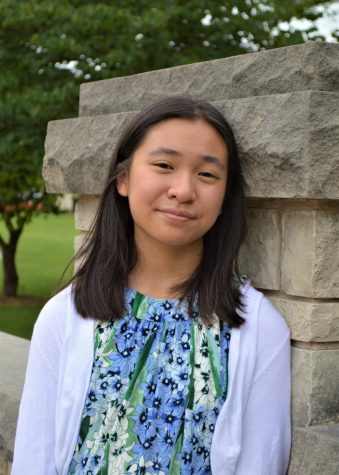From Klingon to Spanish, NACLO challenges students
“Saj lughaj tlhInganpu’ ’e’ leghpu’ ghoqwI’ ’e’ ghojpu’ la’ ’e’ SovTah tlhInganpu’ ’e’ SovTah DevwI’pu’.” Translation: the leaders know that the Klingons know that the commander learned that a spy saw that the Klingons have a pet.
The above is an example from one of eight problems NACLO participants have to solve in three hours. Specifically, it comes from problem D from the 2018 NACLO Open Round. NACLO, the North American Computational Linguistics Olympiad, tests participants’ logic and problem-solving skills through a set of linguistic puzzles. The problems involve working with lesser known languages (and sometimes made-up ones) with tasks such as translation, conjugation, and matching.
This year, Brookfield Central sent ten students to the NACLO Open Round hosted at UW-Milwaukee. Traveling alongside the high schoolers were students from both Elmbrook School District middle schools. Anvith Aravati (‘22) was once one of those students. The first time Aravati took the Olympiad, he was a first-year Spanish student at Wisconsin Hills. “My Spanish teacher recommended it. She said it didn’t matter how many languages I knew, the only thing that matters is that you give it a shot.” This year, Aravati participated for a second time as a freshman. NACLO is one of the most demanding linguistics competitions in the world. “The NACLO is extremely challenging, but if you’re debating whether to take it or not, just take it. You can’t really study for this type of thing, because it’s a fun experience. If you wanna just try out linguistics or challenge yourself for a day, this is the best choice.”
Prior to the start of the test, competitors were treated to a visit by Jacques du Plessis, an Associate Professor of Linguistics at UW-Milwaukee . He described his background in linguistics, from creating an Afrikaans grammar book to becoming the head of the National Consortium of Less Commonly Taught Languages. “I see language learning as a key tool to better understand the deeper sentiments of other cultures. It empowers you to build trust, be an agent for peace, and refine your spirit and understanding of human dynamics,” said Du Plessis. In particular, Du Plessis called attention to importance of pronunciation when speaking a language. To emphasize his point, he spoke in a foreign language twice, asking students to guess which language he was speaking. The first time, students guessed Dutch. The second time, German. It turned out to be neither; instead, Du Plessis had spoken the same language both times: Afrikaans. For Zara Ammar (‘20), this was a highlight of the event. “I thought his speech was very fascinating, especially when he spoke Afrikaans twice in two different dialects to show how the way you speak a language can make a huge difference,” she said.
This year was Ammar’s first time competing in NACLO. One of her friends recommended the competition to her, describing it as “a very challenging, yet fun test.” Ammar tried some practice problems before the day of the competition, but she still wasn’t sure what to expect. After three hours of problems, she found it to be “a really chill experience”. She plans to participate again next year, saying “I really enjoy logic puzzles, and I would like to see if I can improve my score.”
NACLO is a competition not so much for linguists but for logical thinkers. The entirety of the competition problems can be solved by following pure logic, and no language/linguistic experience is needed. Ammar echoed this sentiment: “The questions were difficult. However, they were also a lot of fun and didn’t require nearly as much knowledge regarding linguistics as I thought they would.”
Many types of problems exist in NACLO. They can be categorized into six major types (number, translation, matching, conjugation, algorithm, symbol-based). For Aravati, algorithm type problems are the best fit. “I really like math, and algorithm-based problems allow me to apply my knowledge there.” The eight-problem open round typically covers all six problem types. The three-hour time period indicates the overall difficulty of the test— and the mental endurance required of participants; by the last half hour, some students were doodling on their test booklets. “Make sure you keep your eye on the time,” Ammar advises. “Three hours may seem like a lot, but it really goes by quickly.”
For those who still feel that NACLO is not their cup of tea, look at it this way: it’s a free— though mentally exhausting— ticket out of class for a day.

Stephanie Chen is currently a senior at BCHS, the head Editor in Chief of Tyro and is also involved in: Battle of the Books, DECA, Math Club, Science Bowl,...





